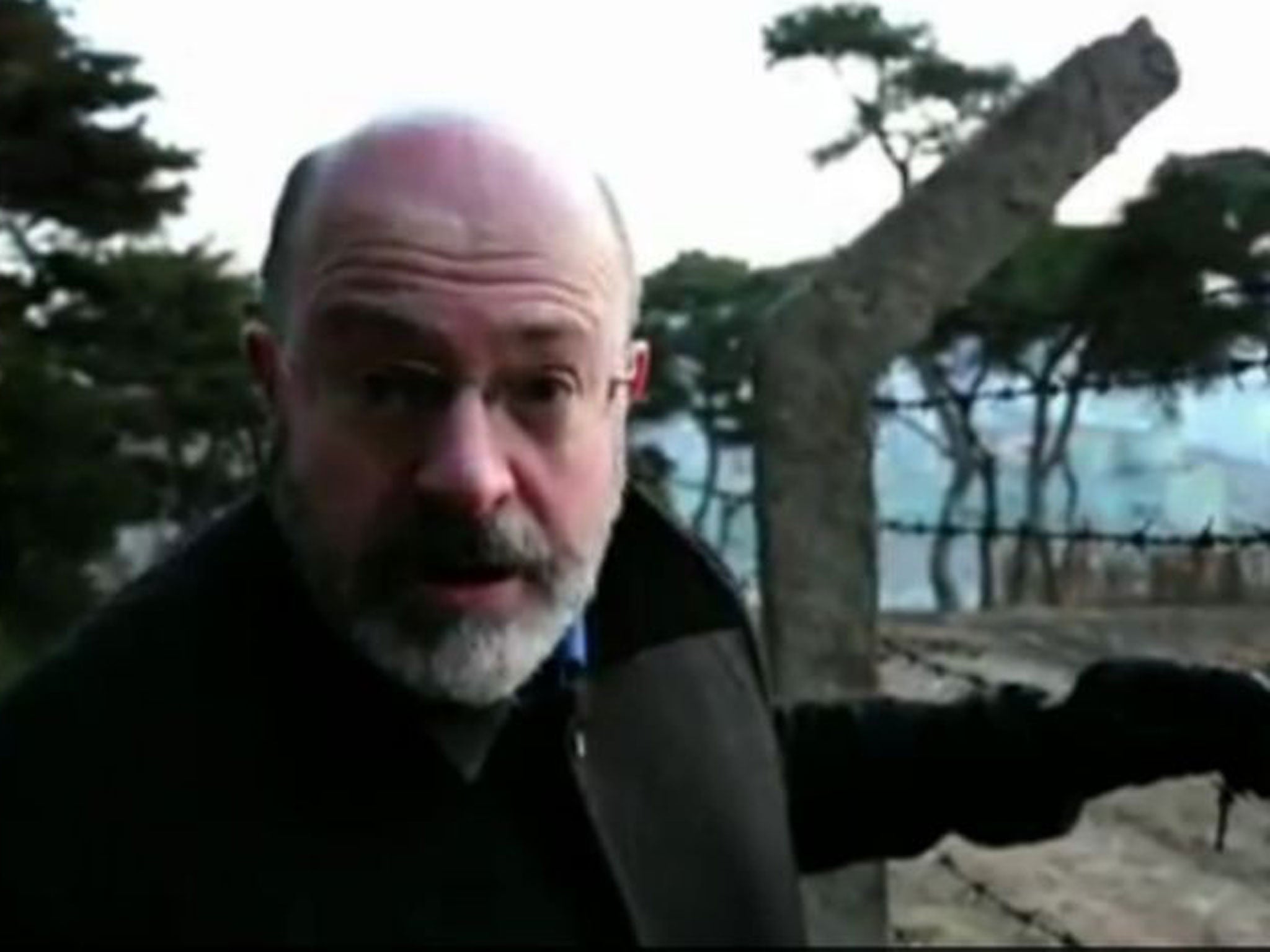Students on BBC Panorama trip are threatened by North Korea
Secretive state warns it might 'make public to the world and the international press the lies made in the name of LSE students'

Students who acted as cover for BBC Panorama’s covert investigation in North Korea received threats from the dictatorship to publish their personal data and some fear their careers could be harmed after it emerged they took part in the secret filming.
The corporation will broadcast the controversial documentary tonight despite a mounting outcry from academics and claims that no competent risk assessment had been undertaken in advance.
The BBC’s new director general, Lord Hall, who last week refused to pull the programme, North Korea Uncovered, after pleas from LSE Chairman Peter Sutherland, is now expected to face a grilling by MPs on the Culture and Media select committee over who authorised the film and why written consent had not been obtained from those taking part.
Lord Hall is also likely to be asked to produce written evidence confirming the BBC’s claims that the students were fully aware of the risks of detention and possible expulsion by entering the highly repressive state with journalists in tow before setting out from London on the £2,000 trip.
Ceri Thomas, BBC News head of programmes defended the decision to go ahead with the broadcast and said that authorisation to make it had gone “right to the top” although he was unsure whether this had involved then acting director general Tim Davie. The BBC did not respond to requests to confirm which senior ranking executive had given approval.
Former Labour Culture Secretary Ben Bradshaw, who sits on the Culture select committee, said there were serious questions over the corporation’s handling of the affair.
“We know again from recent experience that when the BBC is in the middle of a controversy like this it needs to act quickly - just tell the truth, get the information out there and then people can make their own minds up,” he said.
The director of the LSE Professor Craig Calhoun said the BBC had initially tried to persuade the university authorities to conceal its unwitting involvement from staff and students but had feared the story would leak out.
“The entire enterprise was reckless and irresponsible from start to finish, as well as deeply dishonest,” he said.
The trip was organised by presenter John Sweeney’s wife Tomiko, a recent LSE graduate and journalist who had arranged a similar excursion last year and advertised it through student international relations society the Grimshaw Club.
Prof Calhoun added: “The students were deliberately given limited information about the plan, being told only that 'a journalist' would join the group, when in fact it appears the entire visit had been planned from start to finish to facilitate the insertion of a three-person Panorama team.”
An email sent to the students by a North Korean tourism official on their return stated: “'I warn you that I will make public to the world and the international press the lies made in the name of LSE students.
“I reserve the right to make public and publish all personal data, including all your passports, to demonstrate that while we have been direct and honest with you, you have broken the DPRK law.”
Liam Brown, executive editor of the Beaver, the LSE student newspaper who has spoken to a number of those taking part, said some felt “blindsided” when they were told that they would be accompanied by three rather than one reporter and that they would be television rather than print journalists.
“Two sources that talked to us for our original article said … they were concerned because of the potential for work at the United Nations and other senior diplomatic services. These are people who, in the future, will need access to these countries and having this blemish on their record could affect their ability to enter countries like China and Iran in the future,” said Mr Brown.
But Mila Akimova, 21, an MSc student from Russia who was on the trip told The Independent she was happy with the arrangements and met Mr Sweeney and a colleague in Beijing two days before they were due to fly to North Korea. She said the students were told their rooms could be bugged and to avoid making any reference to the documentary crew.
Ms Akimova said the group visited a number of landmarks during the eight day visit in March including the Arch of Triumph and the mausoleum of Kim il Sung. They were also shown a mineral water plant, a farm, an empty factory and a deserted university but were restricted from interacting with local people.
“I went on the trip fully aware that if we were discovered we may even be arrested - which is the reason I insisted on using my Russian passport … The BBC lied to North Korea - but in my opinion a regime like that deserves to be lied to, and it surprises me that the LSE - after the Gaddafi scandal - is trying to cancel a documentary exposing a dictatorship,” she said.
However, Sir Adam Roberts, President of the British Academy, and Sir Paul Nurse, President of the Royal Society said the making of the programme raised serious issues about the credibility and security of UK academics working overseas in sensitive circumstances.
“The ability of academics to work, study and carry out research around the world is hugely dependent on trust and respect for their integrity, and it is vital that this trust is not undermined,” they said in a joint statement.
Join our commenting forum
Join thought-provoking conversations, follow other Independent readers and see their replies
Comments
Bookmark popover
Removed from bookmarks